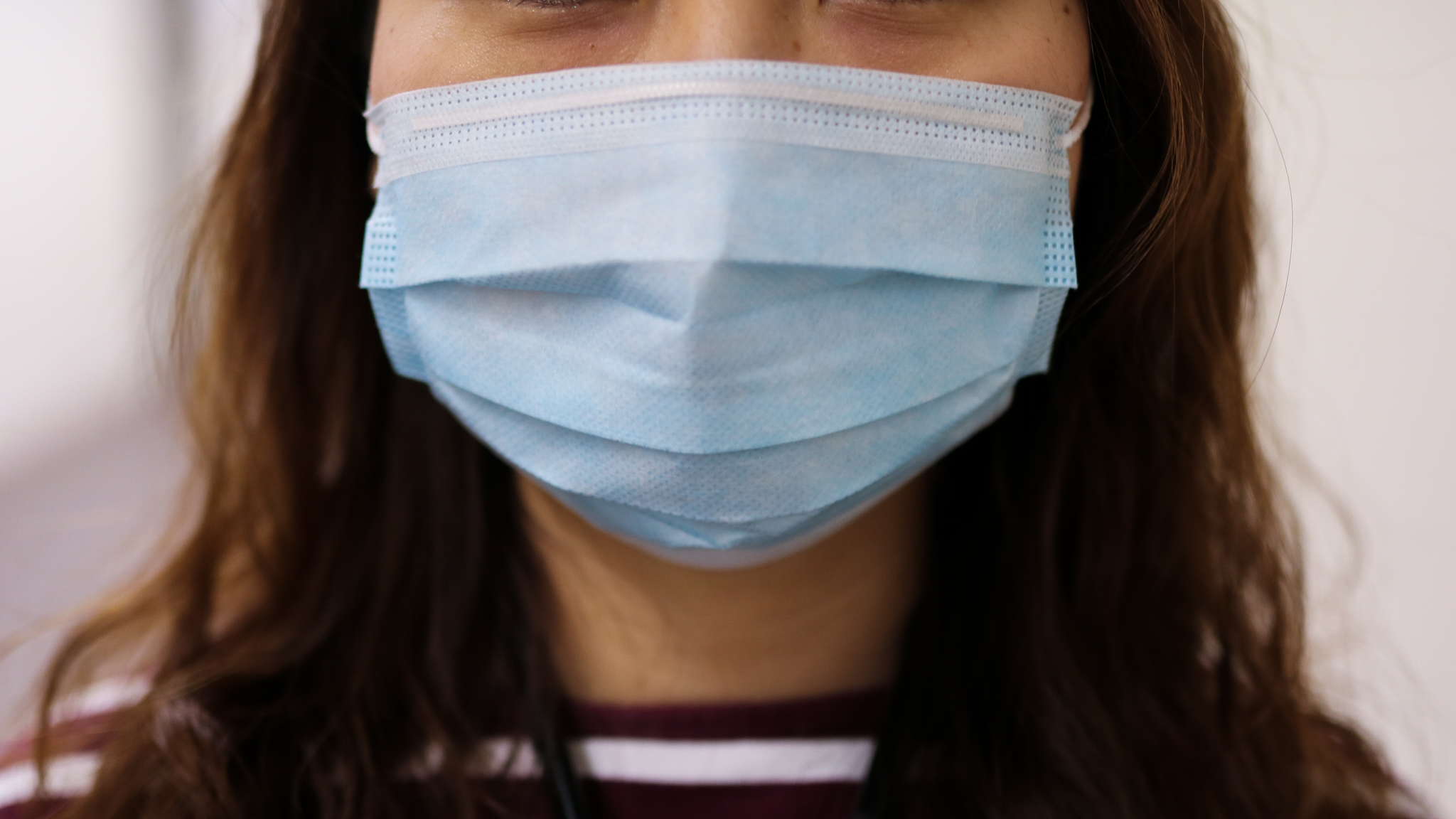Nova Scotia mandates COVID testing for rotational workers
5 of 8 new cases Wednesday related to travel outside of Atlantic Canada

caption
Photo illustration of a woman wearing a medical mask.Starting Friday, rotational workers returning to Nova Scotia from most provinces must get tested for COVID-19 — twice — or face a $1,000 fine.
Nearly 10 per cent or 21 of Nova Scotia’s positive cases since Dec. 1 have been rotational workers, said Dr. Robert Strang, the province’s chief medical officer of health.
“I want to stress that we’re not blaming or looking to single out rotational workers,” Strang said at Tuesday’s COVID briefing. “But by making the testing mandatory, we’re trying to protect rotational workers, their families, and our communities from the virus.”
Premier Stephen McNeil said it was a tough decision but the right one. He identified Alberta as a province with high number of COVID cases and where many Nova Scotians work. Alberta’s oil and gas industry often employs interprovincial workers on rotating schedules, such as two weeks on and two weeks off. Alberta had 13,220 active cases on Tuesday, according to that province’s daily COVID update. Related stories
2020: COVID-19 in Nova Scotia
Strang said only about one-third of rotational workers were voluntarily testing for COVID-19 after returning to Nova Scotia since the province began recommending it on Dec. 18. He did not know exactly how many rotational workers there were but said “a few thousand.”
Strang said it was unnecessary to mandate a similar testing rule for university students because it was more important for them to do a 14-day quarantine. He also said enforcement of mandatory testing for students would be difficult given the province’s resources.
Rotational workers must maintain a modified self-isolation period for 14 days when returning to Nova Scotia. They must get tested on Day 1 or Day 2 of their arrival and then again four to six days later at a primary assessment centre, not at a pop-up or drop-in testing centre.
The province plans to randomly audit rotational workers by checking their testing data. Workers will be called if they missed their first test, and if they fail to get the second, they will be issued the $1,000 fine.
8 new cases
The province reported eight new cases Wednesday, bringing the total number of active cases to 30. Three cases are from the northern zone, two are from the eastern zone, and three are from the central zone.
Three cases are from close contact to previously reported cases, and the remaining five are related to travel outside of Atlantic Canada. Three of those five cases are students.
Public health restrictions, with a few exceptions, will stay in place until midnight of Jan. 24. This includes a ban on sports competitions, although practising and training is permitted with up to 25 people.
Strang defended the decision to continue to prohibit sports competition in schools.
“Games and competitions add in another layer of interaction between teams, officials and families,” he said Tuesday. “We’re not ready yet to add that other layer of exposure.”
Public schools reopened in Nova Scotia on Monday.
Vaccine rollout continues
The province continues to distribute vaccines to front-line health-care workers and residents and staff in long-term care facilities as part of Phase I of the immunization plan.
As of Jan. 9, the province administered 3,831 doses of the vaccine, including 1,076 secondary doses. The province received 13,450 doses of the vaccine and will continue to receive weekly shipments as per a federal distribution schedule.
Having administered a little less than 30 per cent of the vaccines received, Nova Scotia’s rollout pace is slower than most other provinces. For example, New Brunswick has administered nearly 70 per cent of the doses it has received as of Jan. 10, according to their COVID dashboard.
On Tuesday, Strang described the province’s work to set up vaccination sites, put logistics in place and train staff. He said by the end of January, Nova Scotia will have set up four vaccination sites in regional hospitals and another six sites in long-term care facilities.
“While it may look that it’s taking a little bit of time, it’s the biggest, most complex health-care initiative we’ve ever done in this province,” he said.
McNeil said they want to make sure they have the infrastructure in place to administer the million vaccine doses the province expects to receive from April to June.
In May, the province also expects to roll out Phase 2 of its immunization plan, which includes vaccinating essential workers and all other health-care workers.
The province is also reserving half of its vaccine quantities for the required second dose.
Strang said Nova Scotia is in a fortunate position to stick with the 21 or 28-day schedule between doses. “Other provinces are looking at having to stretch that out because they’re in a much different situation with COVID.”
$25M in COVID relief for universities
The province announced Tuesday that it will distribute relief funding to 10 post-secondary institutions to help with expenses and revenue losses from the pandemic.
Universities are reporting losses from reduced intake of tuition and residence fees, as well as increased costs for cleaning and public health measures, and learning supports.
The amounts allocated to each university were based on information they provided, according to the province. Dalhousie University is slated to receive the most, at roughly $9.5 million.
Symptoms and testing
Anyone who is experiencing one of the following symptoms should complete an online self-assessment or call 811 to determine if they should be tested:
- Fever
- New or worsening cough
Anyone with two or more of the following symptoms should also be assessed:
- Sore throat
- Headache
- Shortness of breath or difficulty breathing
- Runny nose or nasal congestion
About the author
Nicole Foussekis
Nicole Foussekis (she/her) lives and writes in Mohkinstsis, also known as Calgary, on Treaty 7 land in Alberta. She is an avid daydreamer and...
